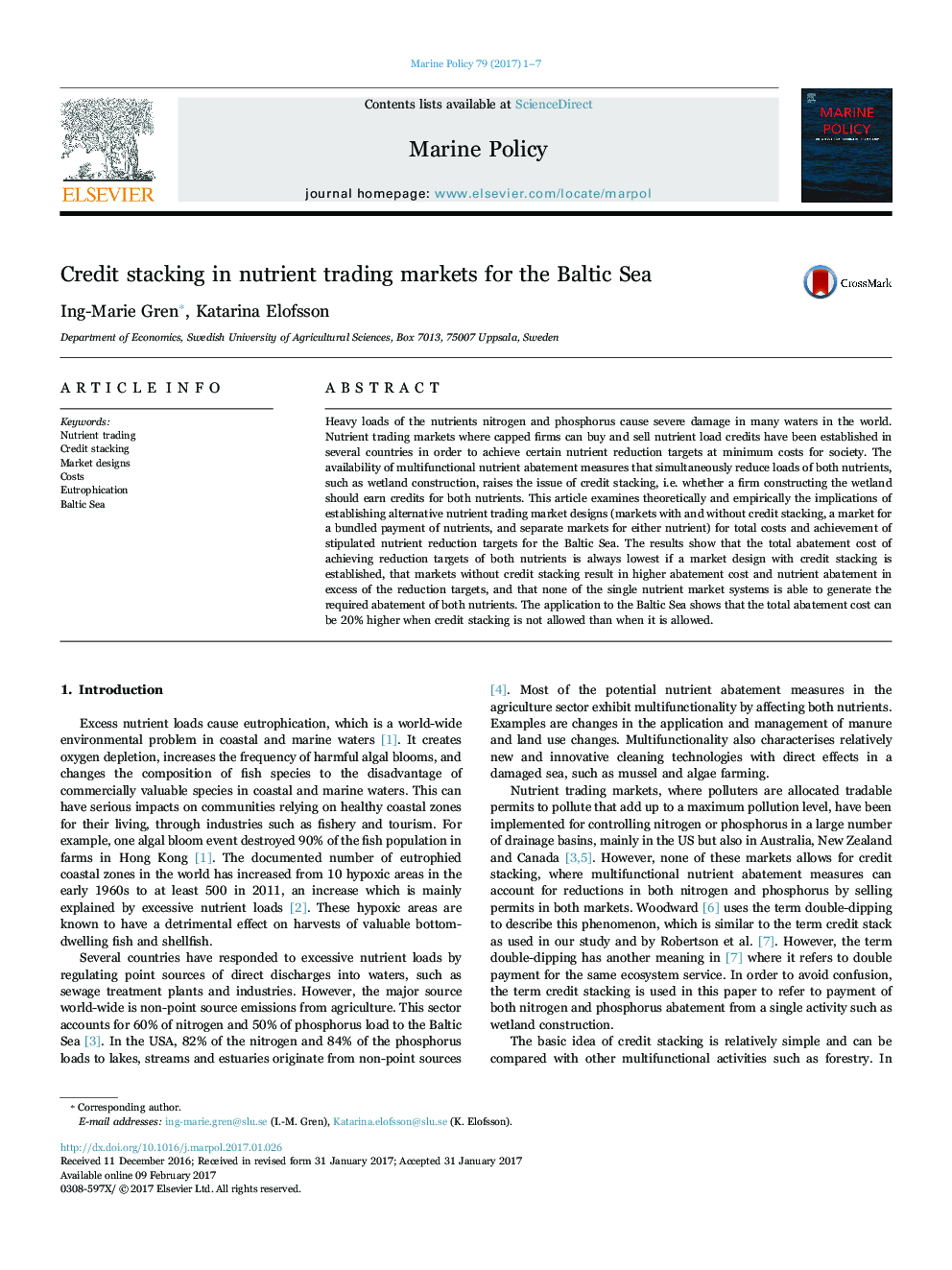| کد مقاله | کد نشریه | سال انتشار | مقاله انگلیسی | نسخه تمام متن |
|---|---|---|---|---|
| 5118332 | 1485500 | 2017 | 7 صفحه PDF | دانلود رایگان |
- Nutrient trading markets for multifunctional abatement measures.
- Comparing costs of alternative nutrient trading markets for the Baltic Sea.
- Costs of a system with credit stacking in both markets lower than without.
- Equilibrium allowance prices lower when stacking is allowed.
- All targets not achieved in a market with bundled allowances of the nutrients.
Heavy loads of the nutrients nitrogen and phosphorus cause severe damage in many waters in the world. Nutrient trading markets where capped firms can buy and sell nutrient load credits have been established in several countries in order to achieve certain nutrient reduction targets at minimum costs for society. The availability of multifunctional nutrient abatement measures that simultaneously reduce loads of both nutrients, such as wetland construction, raises the issue of credit stacking, i.e. whether a firm constructing the wetland should earn credits for both nutrients. This article examines theoretically and empirically the implications of establishing alternative nutrient trading market designs (markets with and without credit stacking, a market for a bundled payment of nutrients, and separate markets for either nutrient) for total costs and achievement of stipulated nutrient reduction targets for the Baltic Sea. The results show that the total abatement cost of achieving reduction targets of both nutrients is always lowest if a market design with credit stacking is established, that markets without credit stacking result in higher abatement cost and nutrient abatement in excess of the reduction targets, and that none of the single nutrient market systems is able to generate the required abatement of both nutrients. The application to the Baltic Sea shows that the total abatement cost can be 20% higher when credit stacking is not allowed than when it is allowed.
Journal: Marine Policy - Volume 79, May 2017, Pages 1-7
